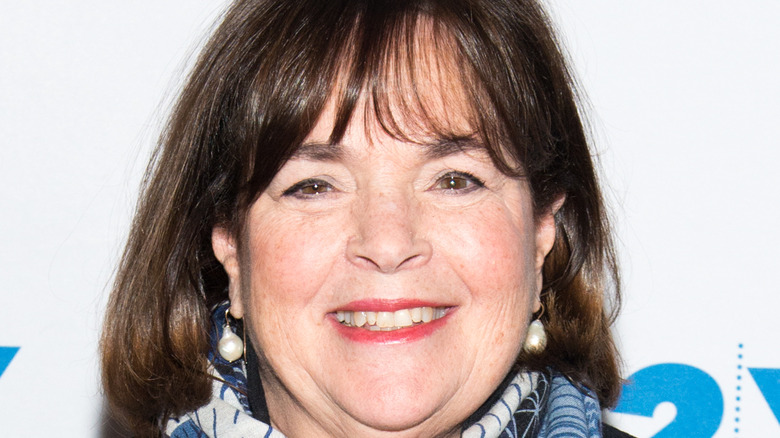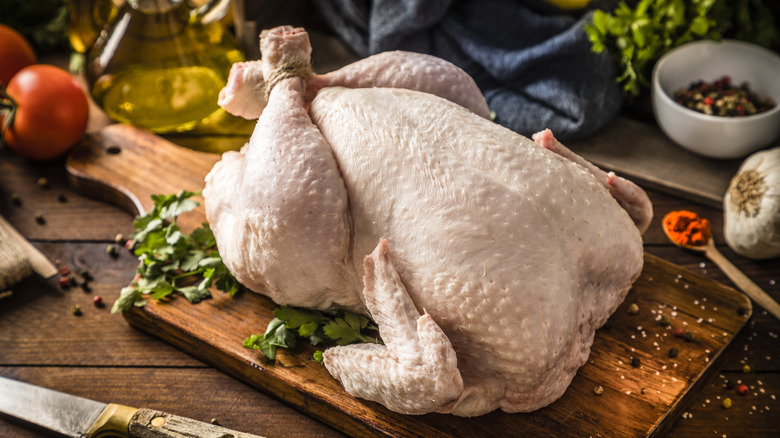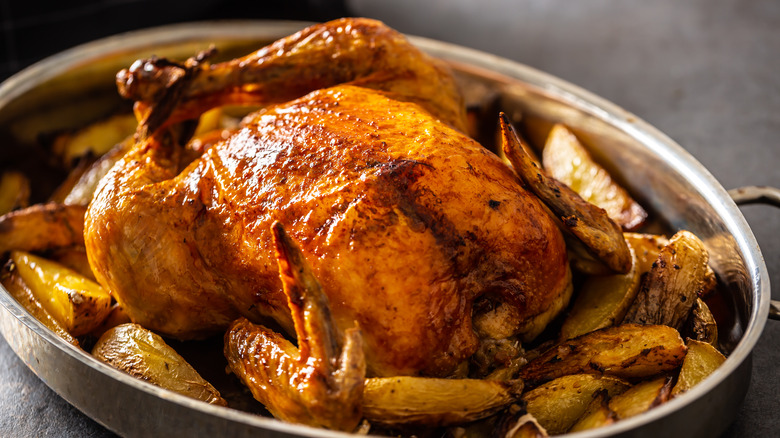Why Ina Garten Always Chooses The Smaller Chicken When Cooking
If you're planning to roast a whole chicken, kitchen whiz Ina Garten suggests that you choose a smaller one. Selecting the size of your poultry has nothing to do with portion size — it's all about flavor and texture. In a Food & Wine article, the author swears by the celebrity chef's tip to use the smallest bird you can find that's roughly four to five pounds. You may be wondering what all the fuss is about. After all, a chicken is a chicken, right? Well, it turns out that not all of them are created equal.
While it might seem culinarily agist, it turns out that young birds simply taste better. Smaller chickens are younger and the younger it is, the more tender the meat will be after you cook it. The older your poultry is, the more muscle it has developed, and therefore the meat will be much tougher after you cook it. However, an older or larger chicken works well for recipes where you'll be tenderizing the meat. So if you're planning to braise the chicken or use the whole thing to make chicken soup, you can opt for a larger one. But when it comes to roasting, you'll want to stick with a bird that is around five pounds or less.
How to find the perfect chicken
You might be thinking that if it's good enough for Garten, it's good enough for you and you'll head right to the store to get a smaller chicken, but it turns out that getting one is a tricky proposition. Chickens are often labeled and categorized by age and weight. Most poultry options are going to be between eight and 12 weeks old and will weigh five pounds and up. So if you're hoping to get a roasting chicken under five pounds, you likely won't find them at any old supermarket.
Your best bet would be to contact a quality butcher in your area, or if there's a local farm near you that sells eggs or chicken, contact them and see if you can buy one there. If neither of those options works for you, call the grocery store in your area that has the best butcher counter and talk with them. If they don't have any smaller chickens in stock you can ask them to call you when they do. Some butchers will sell a whole chicken already cut into pieces for frying, but if they can keep one whole for you that's on the smaller side then your mission will be accomplished.
Why larger birds are not preferred
It turns out that genetics and industrial farming play a role in why smaller chickens are better for roasting. When breeding chickens, farmers tend to breed the largest and strongest but this means that we're getting supersized birds that are growing too fast. Roasting chickens were much smaller a century ago. In fact, at that time your average-sized poultry weighed about two 1/2 pounds. Today, you'll be sorting through massive roasting chickens that might be closer to seven pounds, and because they develop in size so fast the chicken is less tasty and has a less appealing texture.
In addition, the larger a chicken is and the more robust the breast is, the harder it is for your marinade to penetrate all of the meat. Even if you season the inside of the cavity and the outside of the skin, you're still trying to flavor a thicker and denser muscle. Smaller birds are easier to flavor the entirety of the meat. Just keep in mind when following Garten's advice that not every recipe works with the smallest piece of poultry you can find. Cornish game hens, for example, are much smaller than traditional roasting chickens and it's easy to overcook them and have their meat come out dry. So make sure to choose a recipe that works with the age and size of the bird you've bought and you'll have a delicious and flavorful meal.



